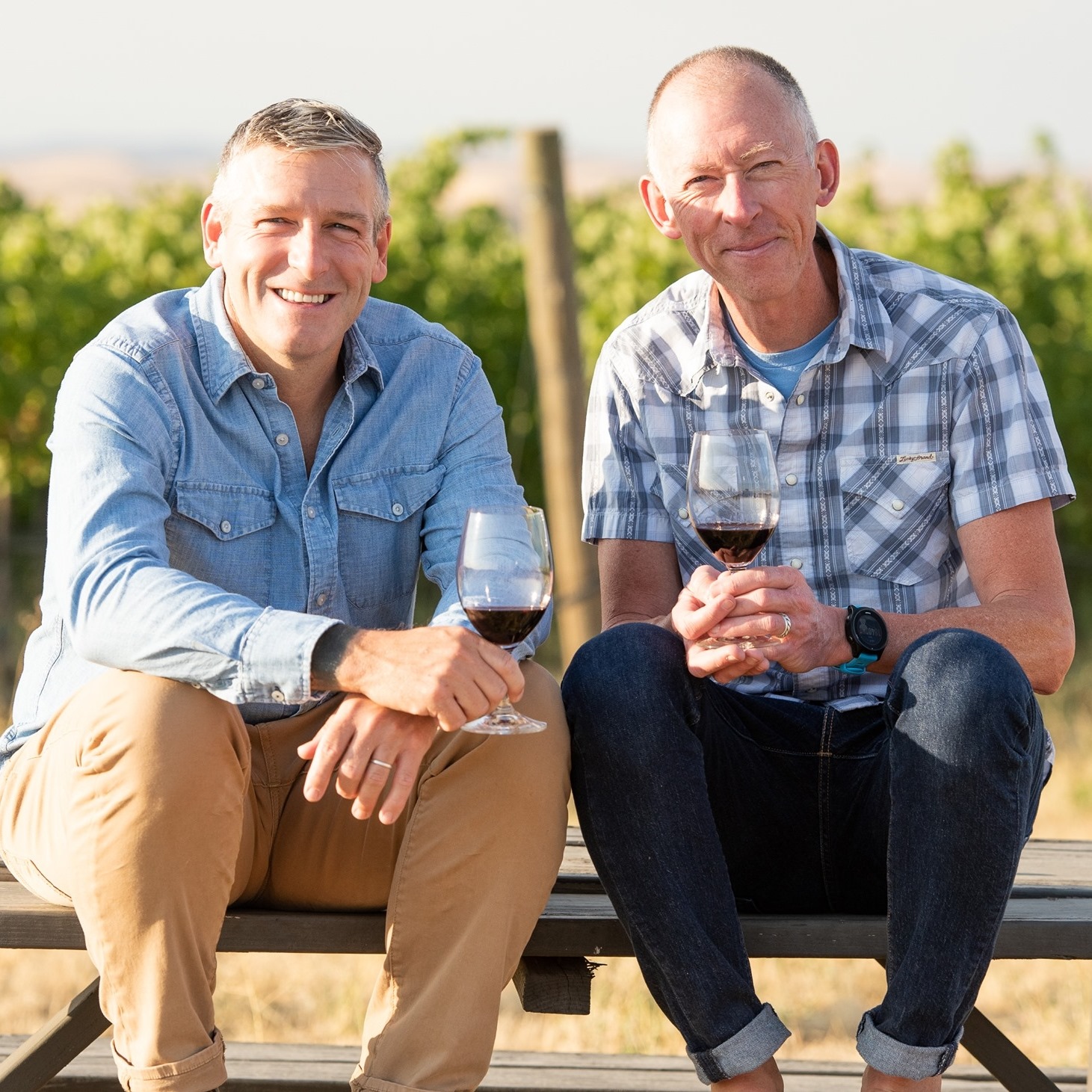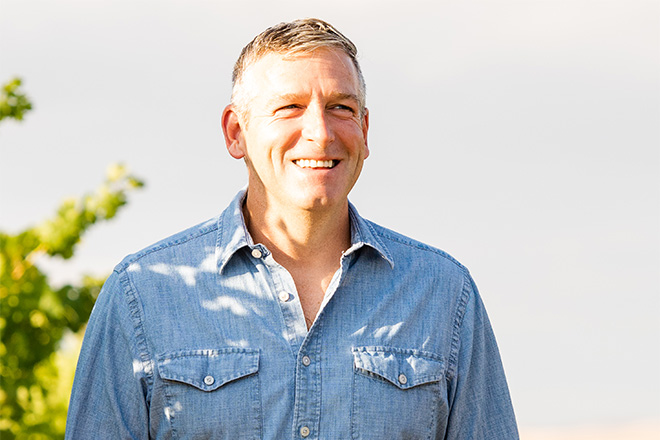Supporting Diversity: an interview with Rob Wohr of Explohr Wine Company by David Perlman.
Rob Wohr, lives in Walla Walla and works at a co-op facility on East Rose street, winemaker and owner of Explohr Wine Company.

David Perlman: How did you get into wine?
Rob Wohr: In 2016 I moved from California to the Seattle area and took a job with Eddie Bauer, kind of with the idea that that would be my last retail retirement job. And two years in, I retired from that first half of my life. And I knew that I wanted to get into the wine industry just because my first exposure to it was down in California, Sonoma, particularly in Dry Creek Valley. I spent years in the Bay area, working for Gap and other retailers and I fell in love with wine out there. Their big, bold, juicy Zinfandel.
DP: Is there someone in the EV world that you admire, including fellow EV alums?
RW: Absolutely, so I did my internship at Syncline Winery down near Hood River in the town of Lyle. I wanted to get outside of Walla Walla to do my internship just because I bought a house here, I knew I was staying and so I wanted to go somewhere else and experience something else and my friend Brian had mentioned that he had done a tasting trip down there. And I met James Matone, the winemaker and owner at Syncline, and he was amazing. He’s very much into caring for and growing the grapes and allowing the grapes to express the site. He’s an amazing teacher and mentor.
DP: What’s special to you about working in the wine industry?
RW: Especially here in Walla Walla, it’s definitely how everyone works together and helps each other, not so much rivalry, instead it’s hey we’re all trying to be successful and do this thing. Something else that is very important to me is trying to shift the industry to being much more inclusive of all groups and races, and just supporting more diversity in this industry.
DP: What is your favorite part of your job?
RW: I really love doing crush. And so I like the doing the production side of it, particularly during crush. You didn’t ask, but my least favorite part is in a big winery topping barrels, hate it, hate it, hate it. But processing the fruit, especially when you’re doing it yourself, you know? I sit there and I have a bit of an A-type personality, and so I have detailed notes. And I have all my additions figured out and everything and then just fruit coming in, and doing it and processing, and then doing your own punchdowns. You know, doing any additions and whatever you choose to do. Going through that whole process of going from grape to wine is absolutely my favorite. And tasting your way through that process.
DP: What are some of the challenges you’ve faced in the industry?
RW: So my first plan was to buy land and plant my own little vineyard, but it’s a lot of work and that got pushed aside kind of immediately. I had to figure out how and where to source fruit from, but everyone is so helpful so it wasn’t an awful problem to solve.
DP: What do you think differentiates and excites you about Washington wine?
RW: Well, we have our own style, doing kind of our own thing up here. The climate is different and there isn’t as much of an expectation of how the wine should taste. I like that we are setting ourselves apart and becoming our own established place in the wine world.
DP: How do you foresee climate change or social issues affecting the local industry in the next few years?
RW: From a climate change standpoint, I think there are vineyard considerations that, you know, people will have to make. Certainly, where I talked about being down in California, the fires now are so bad. I was looking at land going kind of up towards Tahoe, so higher elevation Sierra, but they have fires so frequently now, they have so little water and vineyards take a fair amount of water. I think it’s going to impact growing regions first and then I think winemakers will be forced to source more broadly.
DP: What are some up-and-coming trends in wine that you’re following?
RW: I think that lower alcohol, higher acid is certainly a trend that I’m very interested in. If I can keep my wines certainly below 13.5 is the goal. And if I can get into that 12.8 to 13.2 range I’d be thrilled.
DP: What advice can you share with future EV graduates?
RW: I think if I were to do it over, I probably would have made more varieties, less of each one. So I made 2 tons with the rosé, I made 3.5 tons with the Gamay. And that’s a lot of wine, and I only have three options. So like, when I go to sell it, there’s just not a lot. If you have a wine club member there’s just not a lot of choice. And so my goal with this vintage is to do six varieties, no more than 2 tons each.


Join the Conversation